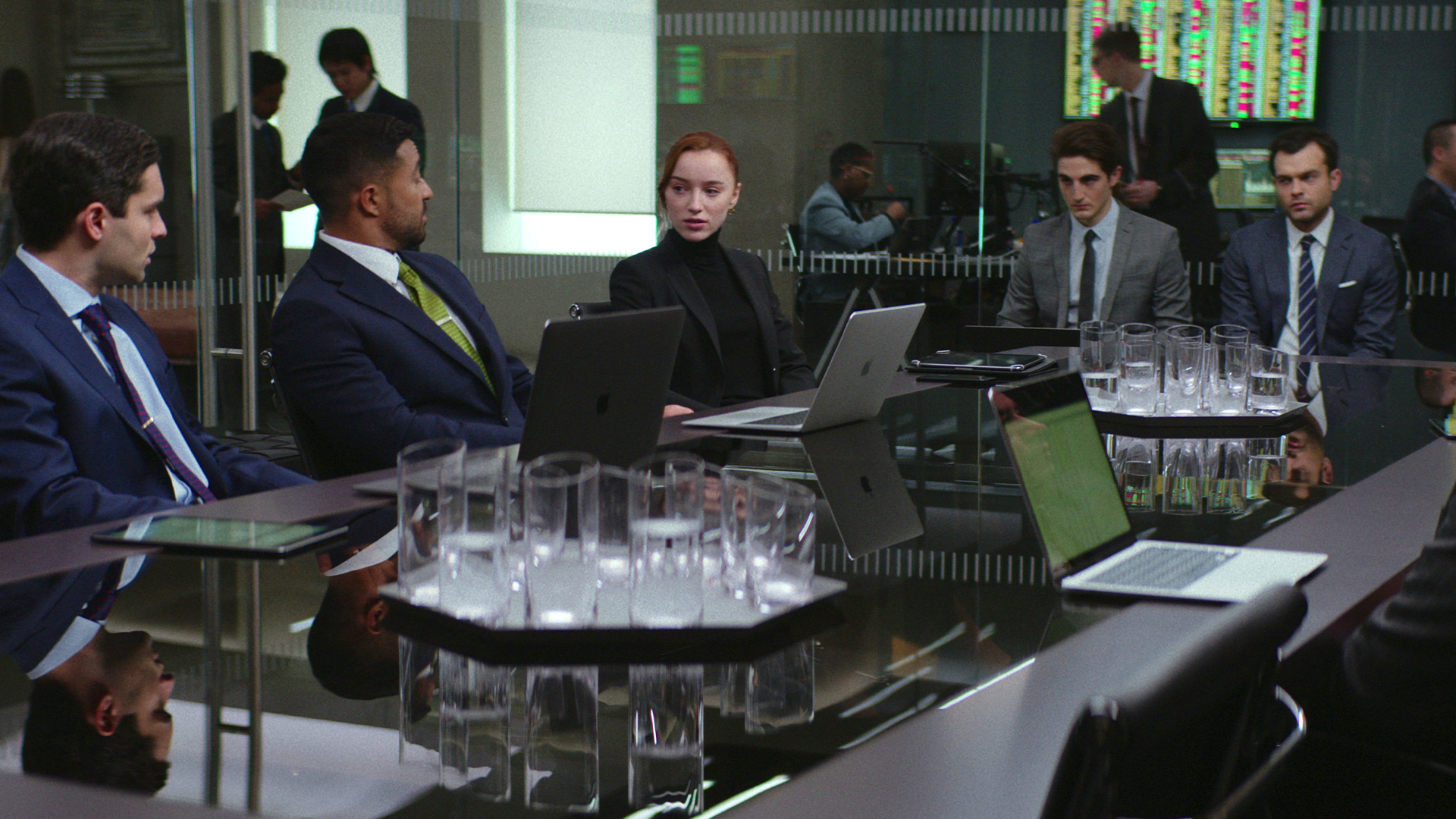Netflix erotic thriller Fair Play is a searing new take on the age-old battle of the sexes

A young couple’s secret workplace relationship is threatened when one is singled out for promotion in erotic thriller Fair Play. Alongside the enjoyable melodrama, the film makes clear just how many double standards still persist when men are asked to make concessions that don’t flatter their egos, writes Katie Parker – and just how quickly their progressive politics evaporate when a woman steps outside of her assigned rank.
Over the past few years many people—including me—have bemoaned the absence of the erotic thriller from modern cinema, and longed for a renaissance of the kind of fun, dark, sexy films that shocked and delighted audiences in the 80s and 90s. Recently, it seems, those prayers have been answered—however, the response never seems to quite hit the spot.
In 2021 we had the Rear Window-inspired The Voyeurs (too silly); In 2022, the grandfather of the erotic thriller himself, Fatal Attraction director Adrian Lyne broke his 20-year-long dry spell with the troubled Ben Affleck production Deep Water (too many snails); Earlier this year saw the release of Sanctuary which, while highly entertaining, ultimately felt more like a screwball comedy than a taut twisty thriller (too cute).
Now with Fair Play, modern cinema heeds the call once again, and with a few key points of difference from its contemporaries, the debut feature from writer-director Chloe Domont promises to give a very modern story the classic erotic thriller treatment.
We meet hot young couple Emily (Bridgerton’s Phoebe Dynevor) and Luke (Alden Ehrenreich, thankfully erasing the memory of Solo) in the midst of getting drunk and randy at his brother’s wedding, too beautiful and in love to keep their hands off each other. When a saucy bathroom hookup is interrupted by the ill-timed arrival of Emily’s period, they are too in love to care that they are now covered in blood—Luke proving himself so progressive that he even takes the moment to propose.
But Luke and Emily can’t announce their engagement to the world just yet and, as coworkers at a cutthroat financial firm, the pair have kept their years-long relationship under wraps for fear of violating company policy. Fortunately, for these two, that just makes things sexier—and, in a workplace where sudden sackings, violent meltdowns, and casual workplace misogyny are not unusual, a few furtive glances and sly smiles work well to lighten the mood.
Things take a turn, however, when a vacancy opens up in the higher ranks and a rumour circulates that Luke is in line to fill it—information he and Emily happily celebrate with more passionate sexy fun. When it turns out that it is Emily, not Luke, to have been singled out for promotion, their once-sweet relationship turns suddenly, dramatically sour.

30-odd years on from office-based thrillers like Disclosure and Fatal Attraction, Fair Play suggests that the corporate world is still not quite sure what to make of women in the workplace. For Domont, what makes Emily’s work environment so hostile is not brash sexist attitudes (though those are very much still alive and well), but the quieter, more insidious ways those manifest even when it seems she has risen above them.
Like many women though, this is something Emily is used to at work—and it is when that misogyny starts seeping into her private life that Fair Play makes clear just how many double standards still persist when men are asked to make concessions that don’t flatter their egos, and just how quickly their progressive politics evaporate when a woman steps outside of her assigned rank. Luke might not mind a bit of period sex, but seeing his fiancé as his professional superior? Now that’s a boner-killer.

As opposing sides in an increasingly nasty little war, Dynevor and Ehrenreich are both excellent, with Dynevor perfectly conveying the physical tells of a woman who has expertly learned to absorb the shock of bad male behavior.
Ehrenreich too is adept in his ability to move between charming, to domineering, to desperate, and back again as though nothing happened at all, in a way that is chillingly familiar. In an unusual reversal of traditional cinematic dynamics, though, it feels at times as though his character is not given quite enough to do—and it’s hard not to imagine that Luke’s unraveling could have had more dramatic impact had it been thoroughly interrogated, rather than getting lost in sulky man-baby cliche.
As such, this is very much Emily’s story—one which is vivid and visceral, though not particularly erotic or thrilling. Instead, Fair Play more closely resembles the melodrama, with Emily gradually bridging the gap between the fantasy and reality of female success, finally achieving catharsis after an ever-escalating onslaught of punishment and humiliation.
Debuting to rave reviews and industry buzz at the Sundance Film Festival, Fair Play was quickly snapped up by Netflix—which, as has been proven time and time again, can be a double-edged sword for subtler, more sombre films. Yet despite Domont’s refusal to succumb to sensationalism, Fair Play is a searing new take on the age-old battle of the sexes.


















